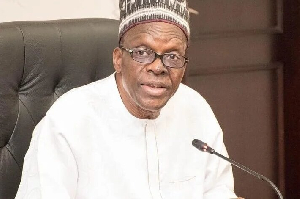Accra (Greater Accra), 10th July 99, --
The Africa Regional Conference of the International Social Security Association (ISSA) ended in Accra on Thursday with a call on international bodies to support Africa's innovative approaches for the provision of social protection.
Africans also demanded more attention from stakeholders to affirming the independence and improving the quality of governance of social security schemes and institutions.
The over 200 delegates from 30 African countries, the ISSA secretariat in Geneva, the World Bank, International Labour Organisation, World Health Organisation and other donor agencies, descended on Accra to search for security in Africa's social security agencies.
Under the broad theme of "Social Security in Africa: New Realities," the three-day conference made inroads into the challenges facing Africa in the new millennium.
With a low coverage of 10 per cent of its active population, representing just about three per cent of the entire working population of the continent, the under currents of the conference were for Africa to shift towards a global debate on privatisation of social security institutions.
"Our worry is how to reach the 90-odd per cent of non-covered persons in the typical African country where mostly, coverage has stagnated or shrunk," said a World Bank paper, presented to the delegates.
The Bank, which is behind Africa's sweeping structural reforms, wants social security institutions to be reformed for greater autonomy and transparency in investing members' contributions.
But, the Africans were firm in advocating "for social protection to workers and their families in the informal and rural sectors that take into account the distinct social and cultural traditions in Africa."
In a summary of sentiments from the African delegates, Mr Charles Asare, Director General of Ghana's Social Security and National Insurance Trust, appreciated the opportunity to exchanging national experiences and engaging in dialogue with the ILO, WHO and the World Bank on appropriate social protection policies and strategies.
"I will, on behalf of participants, urge ISSA to take some innovative actions to advance the cause of social protection to the informal sector as discussed at this conference," Mr Asare said.
Any reform in social protection on the continent, the delegates said, should be within the framework of national social protection policies including income maintenance, health care, education and housing.
However, the delegates agreed that even though the African traditional family structures provide some safety nets towards old age, invalidity and survivors benefits needs to be brought under a formal social protection umbrella.
Click to view details



Business News of Monday, 12 July 1999
Source: --
















